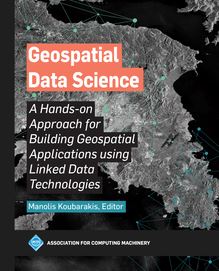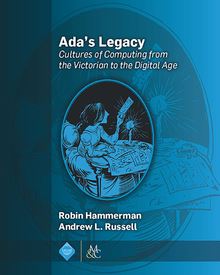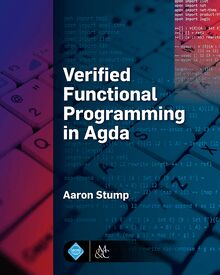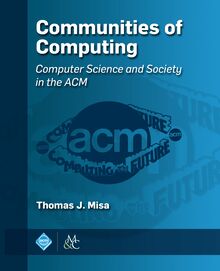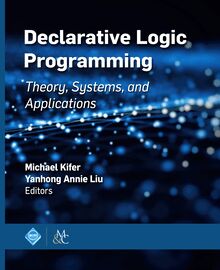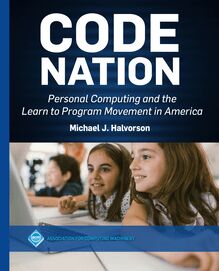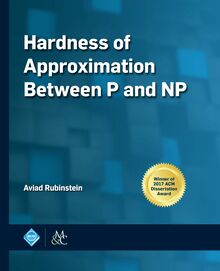-
 Univers
Univers
-
 Ebooks
Ebooks
-
 Livres audio
Livres audio
-
 Presse
Presse
-
 Podcasts
Podcasts
-
 BD
BD
-
 Documents
Documents
-
- Cours
- Révisions
- Ressources pédagogiques
- Sciences de l’éducation
- Manuels scolaires
- Langues
- Travaux de classe
- Annales de BEP
- Etudes supérieures
- Maternelle et primaire
- Fiches de lecture
- Orientation scolaire
- Méthodologie
- Corrigés de devoir
- Annales d’examens et concours
- Annales du bac
- Annales du brevet
- Rapports de stage
La lecture à portée de main
Vous pourrez modifier la taille du texte de cet ouvrage
Découvre YouScribe en t'inscrivant gratuitement
Je m'inscrisThe Handbook of Multimodal-Multisensor Interfaces, Volume 3 , livre ebook
Découvre YouScribe en t'inscrivant gratuitement
Je m'inscrisEn savoir plus
Vous pourrez modifier la taille du texte de cet ouvrage
En savoir plus

Description
The Handbook of Multimodal-Multisensor Interfaces provides the first authoritative resource on what has become the dominant paradigm for new computer interfaces-user input involving new media (speech, multi-touch, hand and body gestures, facial expressions, writing) embedded in multimodal-multisensor interfaces.
This three-volume handbook is written by international experts and pioneers in the field. It provides a textbook, reference, and technology roadmap for professionals working in this and related areas.
This third volume focuses on state-of-the-art multimodal language and dialogue processing, including semantic integration of modalities. The development of increasingly expressive embodied agents and robots has become an active test bed for coordinating multimodal dialogue input and output, including processing of language and nonverbal communication. In addition, major application areas are featured for commercializing multimodal-multisensor systems, including automotive, robotic, manufacturing, machine translation, banking, communications, and others. These systems rely heavily on software tools, data resources, and international standards to facilitate their development. For insights into the future, emerging multimodal-multisensor technology trends are highlighted in medicine, robotics, interaction with smart spaces, and similar areas. Finally, this volume discusses the societal impact of more widespread adoption of these systems, such as privacy risks and how to mitigate them. The handbook chapters provide a number of walk-through examples of system design and processing, information on practical resources for developing and evaluating new systems, and terminology and tutorial support for mastering this emerging field. In the final section of this volume, experts exchange views on a timely and controversial challenge topic, and how they believe multimodal-multisensor interfaces need to be equipped to most effectively advance human performance during the next decade.
- Preface
- Figure Credits
- Introduction: Toward the Design, Construction, and Deployment of Multimodal-Multisensor Interfaces
- MULTIMODAL LANGUAGE AND DIALOGUE PROCESSING
- Multimodal Integration for Interactive Conversational Systems
- Multimodal Conversational Interaction with Robots
- Situated Interaction
- Software Platforms and Toolkits for Building Multimodal Systems and Applications
- Challenge Discussion: Advancing Multimodal Dialogue
- Nonverbal Behavior in Multimodal Performances
- MULTIMODAL BEHAVIOR
- Ergonomics for the Design of Multimodal Interfaces
- Early Integration for Movement Modeling in Latent Spaces
- Standardized Representations and Markup Languages for Multimodal Interaction
- Multimodal Databases
- EMERGING TRENDS AND APPLICATIONS
- Medical and Health Systems
- Automotive Multimodal Human-Machine Interface
- Embedded Multimodal Interfaces in Robotics: Applications, Future Trends, and Societal Implications
- Multimodal Dialogue Processing for Machine Translation
- Commercialization of Multimodal Systems
- Privacy Concerns of Multimodal Sensor Systems
- Index
- Biographies
- Volume 3 Glossary
Sujets
Informations
| Publié par | Association for Computing Machinery and Morgan & Claypool Publishers |
| Date de parution | 25 juin 2019 |
| Nombre de lectures | 0 |
| EAN13 | 9781970001747 |
| Langue | English |
| Poids de l'ouvrage | 7 Mo |
Informations légales : prix de location à la page 0,3998€. Cette information est donnée uniquement à titre indicatif conformément à la législation en vigueur.
Extrait
The Handbook of Multimodal-Multisensor Interfaces, Volume 3
ACM Books
Editor in Chief
M. Tamer zsu, University of Waterloo
ACM Books is a new series of high-quality books for the computer science community, published by ACM in collaboration with Morgan Claypool Publishers. ACM Books publications are widely distributed in both print and digital formats through booksellers and to libraries (and library consortia) and individual ACM members via the ACM Digital Library platform.
The Handbook of Multimodal-Multisensor Interfaces, Volume 3: Language Processing, Software, Commercialization, and Emerging Directions
Editors: Sharon Oviatt, Monash University
Bj rn Schuller, University of Augsburg and Imperial College London
Philip R. Cohen, Monash University
Daniel Sonntag, German Research Center for Artificial Intelligence (DFKI)
Gerasimos Potamianos, University of Thessaly
Antonio Kr ger, Saarland University and German Research Center for Artificial Intelligence (DFKI)
2019
Data Cleaning
Ihab F. Ilyas, University of Waterloo
Xu Chu, Georgia Institute of Technology
2019
Conversational UX Design: A Practitioner s Guide to the Natural Conversation Framework
Robert J. Moore, IBM Research-Almaden
Raphael Arar, IBM Research-Almaden
2019
Heterogeneous Computing: Hardware and Software Perspectives
Mohamed Zahran, New York University
2019
Hardness of Approximation Between P and NP
Aviad Rubinstein, Stanford University
2019
Making Databases Work: The Pragmatic Wisdom of Michael Stonebraker
Editor: Michael L. Brodie, Massachusetts Institute of Technology
2018
The Handbook of Multimodal-Multisensor Interfaces, Volume 2: Signal Processing, Architectures, and Detection of Emotion and Cognition
Editors: Sharon Oviatt, Monash University
Bj rn Schuller, University of Augsburg and Imperial College London
Philip R. Cohen, Monash University
Daniel Sonntag, German Research Center for Artificial Intelligence (DFKI)
Gerasimos Potamianos, University of Thessaly
Antonio Kr ger, Saarland University and German Research Center for Artificial Intelligence (DFKI)
2018
Declarative Logic Programming: Theory, Systems, and Applications
Editors: Michael Kifer, Stony Brook University
Yanhong Annie Liu, Stony Brook University
2018
The Sparse Fourier Transform: Theory and Practice
Haitham Hassanieh, University of Illinois at Urbana-Champaign
2018
The Continuing Arms Race: Code-Reuse Attacks and Defenses
Editors: Per Larsen, Immunant, Inc .
Ahmad-Reza Sadeghi, Technische Universit t Darmstadt
2018
Frontiers of Multimedia Research
Editor: Shih-Fu Chang, Columbia University
2018
Shared-Memory Parallelism Can Be Simple, Fast, and Scalable
Julian Shun, University of California, Berkeley
2017
Computational Prediction of Protein Complexes from Protein Interaction Networks
Sriganesh Srihari, The University of Queensland Institute for Molecular Bioscience
Chern Han Yong, Duke-National University of Singapore Medical School
Limsoon Wong, National University of Singapore
2017
The Handbook of Multimodal-Multisensor Interfaces, Volume 1: Foundations, User Modeling, and Common Modality Combinations
Editors: Sharon Oviatt, Incaa Designs
Bj rn Schuller, University of Passau and Imperial College London
Philip R. Cohen, Voicebox Technologies
Daniel Sonntag, German Research Center for Artificial Intelligence (DFKI)
Gerasimos Potamianos, University of Thessaly
Antonio Kr ger, Saarland University and German Research Center for Artificial Intelligence (DFKI)
2017
Communities of Computing: Computer Science and Society in the ACM
Thomas J. Misa, Editor, University of Minnesota
2017
Text Data Management and Analysis: A Practical Introduction to Information Retrieval and Text Mining
ChengXiang Zhai, University of Illinois at Urbana-Champaign
Sean Massung, University of Illinois at Urbana-Champaign
2016
An Architecture for Fast and General Data Processing on Large Clusters
Matei Zaharia, Stanford University
2016
Reactive Internet Programming: State Chart XML in Action
Franck Barbier, University of Pau, France
2016
Verified Functional Programming in Agda
Aaron Stump, The University of Iowa
2016
The VR Book: Human-Centered Design for Virtual Reality
Jason Jerald, NextGen Interactions
2016
Ada s Legacy: Cultures of Computing from the Victorian to the Digital Age
Robin Hammerman, Stevens Institute of Technology
Andrew L. Russell, Stevens Institute of Technology
2016
Edmund Berkeley and the Social Responsibility of Computer Professionals
Bernadette Longo, New Jersey Institute of Technology
2015
Candidate Multilinear Maps
Sanjam Garg, University of California, Berkeley
2015
Smarter Than Their Machines: Oral Histories of Pioneers in Interactive Computing
John Cullinane, Northeastern University; Mossavar-Rahmani Center for Business and Government, John F. Kennedy School of Government, Harvard University
2015
A Framework for Scientific Discovery through Video Games
Seth Cooper, University of Washington
2014
Trust Extension as a Mechanism for Secure Code Execution on Commodity Computers
Bryan Jeffrey Parno, Microsoft Research
2014
Embracing Interference in Wireless Systems
Shyamnath Gollakota, University of Washington
2014
The Handbook of Multimodal-Multisensor Interfaces, Volume 3
Language Processing, Software, Commercialization, and Emerging Directions
Sharon Oviatt
Monash University
Bj rn Schuller
University of Augsburg and Imperial College London
Philip R. Cohen
Monash University
Daniel Sonntag
German Research Center for Artificial Intelligence (DFKI)
Gerasimos Potamianos
University of Thessaly
Antonio Kr ger
Saarland University and German Research Center for Artificial Intelligence (DFKI)
ACM Books #23
Copyright 2019 by the Association for Computing Machinery and Morgan Claypool Publishers
All rights reserved. No part of this publication may be reproduced, stored in a retrieval system, or transmitted in any form or by any means-electronic, mechanical, photocopy, recording, or any other except for brief quotations in printed reviews-without the prior permission of the publisher.
Designations used by companies to distinguish their products are often claimed as trademarks or registered trademarks. In all instances in which Morgan Claypool is aware of a claim, the product names appear in initial capital or all capital letters. Readers, however, should contact the appropriate companies for more complete information regarding trademarks and registration.
The Handbook of Multimodal-Multisensor Interfaces, Volume 3
Sharon Oviatt, Bj rn Schuller, Philip R. Cohen, Daniel Sonntag, Gerasimos Potamianos, Antonio Kr ger, editors
books.acm.org
www.morganclaypoolpublishers.com
ISBN: 978-1-97000-175-4 hardcover
ISBN: 978-1-97000-172-3 paperback
ISBN: 978-1-97000-173-0 eBook
ISBN: 978-1-97000-174-7 ePub
Series ISSN: 2374-6769 print 2374-6777 electronic
DOIs:
10.1145/3233795 Book
10.1145/3233795.3233796 Preface
10.1145/3233795.3233797 Introduction
10.1145/3233795.3233798 Chapter 1
10.1145/3233795.3233799 Chapter 2
10.1145/3233795.3233800 Chapter 3
10.1145/3233795.3233801 Chapter 4
10.1145/3233795.3233802 Chapter 5
10.1145/3233795.3233803 Chapter 6
10.1145/3233795.3233804 Chapter 7
10.1145/3233795.3233805 Chapter 8
10.1145/3233795.3233806 Chapter 9
10.1145/3233795.3233807 Chapter 10
10.1145/3233795.3233808 Chapter 11
10.1145/3233795.3233809 Chapter 12
10.1145/3233795.3233810 Chapter 13
10.1145/3233795.3233811 Chapter 14
10.1145/3233795.3233812 Chapter 15
10.1145/3233795.3233813 Chapter 16
10.1145/3233795.3233814 Index / Bios / Glossary
A publication in the ACM Books series, #23
Editor in Chief: M. Tamer zsu, University of Waterloo
Area Editor: Michel Beaudouin-Lafon, Universit Paris-Sud
This book was typeset in Arnhem Pro 10/14 and Flama using ZzTEX.
First Edition
10 9 8 7 6 5 4 3 2 1
This book is dedicated to our families, whose patience and support sustained the year-long effort required to organize, write, and manage different stages of this multi-volume project .
Contents
Preface
Figure Credits
Introduction: Toward the Design, Construction, and Deployment of Multimodal-Multisensor Interfaces
Multimodal Language and Dialogue Processing
Multimodal Behavior
Emerging Trends and Applications
Insights into the Chapters Ahead
References
PART I
MULTIMODAL LANGUAGE AND DIALOGUE PROCESSING
Chapter 1
Multimodal Integration for Interactive Conversational Systems
Michael Johnston
1.1 Introduction
1.2 Motivations for Multimodal Input
1.3 Early Approaches to Multimodal Fusion
1.4 Unification-based Multimodal Fusion and Related Approaches
1.5 Multimodal Grammars and Finite-state Approaches
1.6 Incremental Multimodal Integration Using Event Logic and Visual Statecharts
1.7 Multimodal Reference Resolution and Multimodal Dialog
1.8 Applications of Machine Learning to Multimodal Integration
1.9 Conclusion
Focus questions
References
Chapter 2
Multimodal Conversational Interaction with Robots
Gabriel Skantze, Joakim Gustafson, Jonas Beskow
2.1 Introduction
2.2 The Importance of the Face in Interaction
2.3 Giving the Robot a Face
2.4 Modeling Human-Robot Interaction
2.5 Turn-Taking
2.6 Grounding and Feedback
2.7 Joint Attention
2.8 Conclusions
References
Chapter 3
Situated Interaction
Dan Bohus, Eric Horvitz
3.1 Introduction
3.2 Situated Spoken Language Interaction
3.3 Engagement
3.4 Conclusion
Acknowledgments
Focus Questions
References
Chapter 4
Software Platforms and Toolkits for Building Multimodal Systems and Applications
Michael Feld, Robert Ne elrath, Tim Schwartz
4.1 Introduction
4.2 Definitions
4.3 Architecture of Dialogue Systems
4.4 Dialogue Management Architectures
4.5 Fusion and Communicative Functions
4.6 Multimodal and Cross-Modal Reference Resolution
4.7 Review of Existing Dialogue Platforms
4.8 SiAM-dp-the Situation-Adap
-
 Univers
Univers
-
 Ebooks
Ebooks
-
 Livres audio
Livres audio
-
 Presse
Presse
-
 Podcasts
Podcasts
-
 BD
BD
-
 Documents
Documents
-
Jeunesse
-
Littérature
-
Ressources professionnelles
-
Santé et bien-être
-
Savoirs
-
Education
-
Loisirs et hobbies
-
Art, musique et cinéma
-
Actualité et débat de société
-
Jeunesse
-
Littérature
-
Ressources professionnelles
-
Santé et bien-être
-
Savoirs
-
Education
-
Loisirs et hobbies
-
Art, musique et cinéma
-
Actualité et débat de société
-
Actualités
-
Lifestyle
-
Presse jeunesse
-
Presse professionnelle
-
Pratique
-
Presse sportive
-
Presse internationale
-
Culture & Médias
-
Action et Aventures
-
Science-fiction et Fantasy
-
Société
-
Jeunesse
-
Littérature
-
Ressources professionnelles
-
Santé et bien-être
-
Savoirs
-
Education
-
Loisirs et hobbies
-
Art, musique et cinéma
-
Actualité et débat de société
- Cours
- Révisions
- Ressources pédagogiques
- Sciences de l’éducation
- Manuels scolaires
- Langues
- Travaux de classe
- Annales de BEP
- Etudes supérieures
- Maternelle et primaire
- Fiches de lecture
- Orientation scolaire
- Méthodologie
- Corrigés de devoir
- Annales d’examens et concours
- Annales du bac
- Annales du brevet
- Rapports de stage
